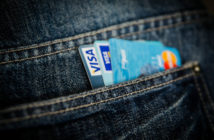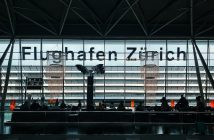Brexit trade discussions have had to be put on pause after a member of the EU negotiating team fell ill with a confirmed case of Covid-19.
EU chief negotiator Michel Barnier confirmed that he had halted talks “for a short period” due to one of his team catching the virus, but said that both sides would “continue their work in full respect of the guidelines”.
???????????????? update: one of the negotiators in my team has tested positive for COVID-19. With @DavidGHFrost we have decided to suspend the negotiations at our level for a short period. The teams will continue their work in full respect of guidelines.
— Michel Barnier (@MichelBarnier) November 19, 2020
The discussions have gone down to the wire, with Brussels and London still unable to agree on a number of issues including those around fishing rights and the ‘level playing field‘ rules on tax, employment, and state aid.
The Brexit transition period ends on 31 December, after which if the two sides have not agreed and ratified a trade deal the UK would face the immediate imposition of tariffs, quotas, and other bureaucratic red tape. Independent and government forecasters agree that this no-deal scenario would lead to severe short-term disruption to businesses and significant and widespread economic damage to the UK economy, with a smaller but still dramatic impact on EU trade.
Earlier in the month, the pound to euro exchange rate was buoyed by the idea that the EU and UK might find a pathway to a deal after two leading Brexit campaigners, Dominic Cumming and Lee Cain, left Downing Street under a cloud of mistrust and contradictory briefings. However, more recently the markets have been less optimistic about a deal after the UK’s lead negotiator David Frost, an ally of the recently departed Vote Leave duo, said he would not change position.
In a statement, Frost said: “We are working to get a deal, but the only one that’s possible is one that is compatible with our sovereignty and takes back control of our laws, our trade, and our waters. That has been our consistent position from the start and I will not be changing it.”
2/4 We are working to get a deal, but the only one that's possible is one that is compatible with our sovereignty and takes back control of our laws, our trade, and our waters. That has been our consistent position from the start and I will not be changing it.
— David Frost (@DavidGHFrost) November 15, 2020
Over the last few months the UK government has spent millions of pounds on an advertising campaign telling businesses to “prepare” for the new post-Brexit trading relationship between the UK and EU, but without any idea of what the relationship will look like many business leaders say the campaign is a waste of tax-payer money. Others have pointed out that in the event of no-deal, the distribution of any successful coronavirus vaccine roll-out may be hampered by severe delays at the border, with some estimations that it may take days or weeks for goods to go through the various new checks that will be imposed.
Meanwhile, in the EU frustrations are growing that the European Commission has not yet published its contingency plans for a no-deal Brexit, with the possibility of no-deal higher than ever with just 42 days until the UK’s transition period expires.




